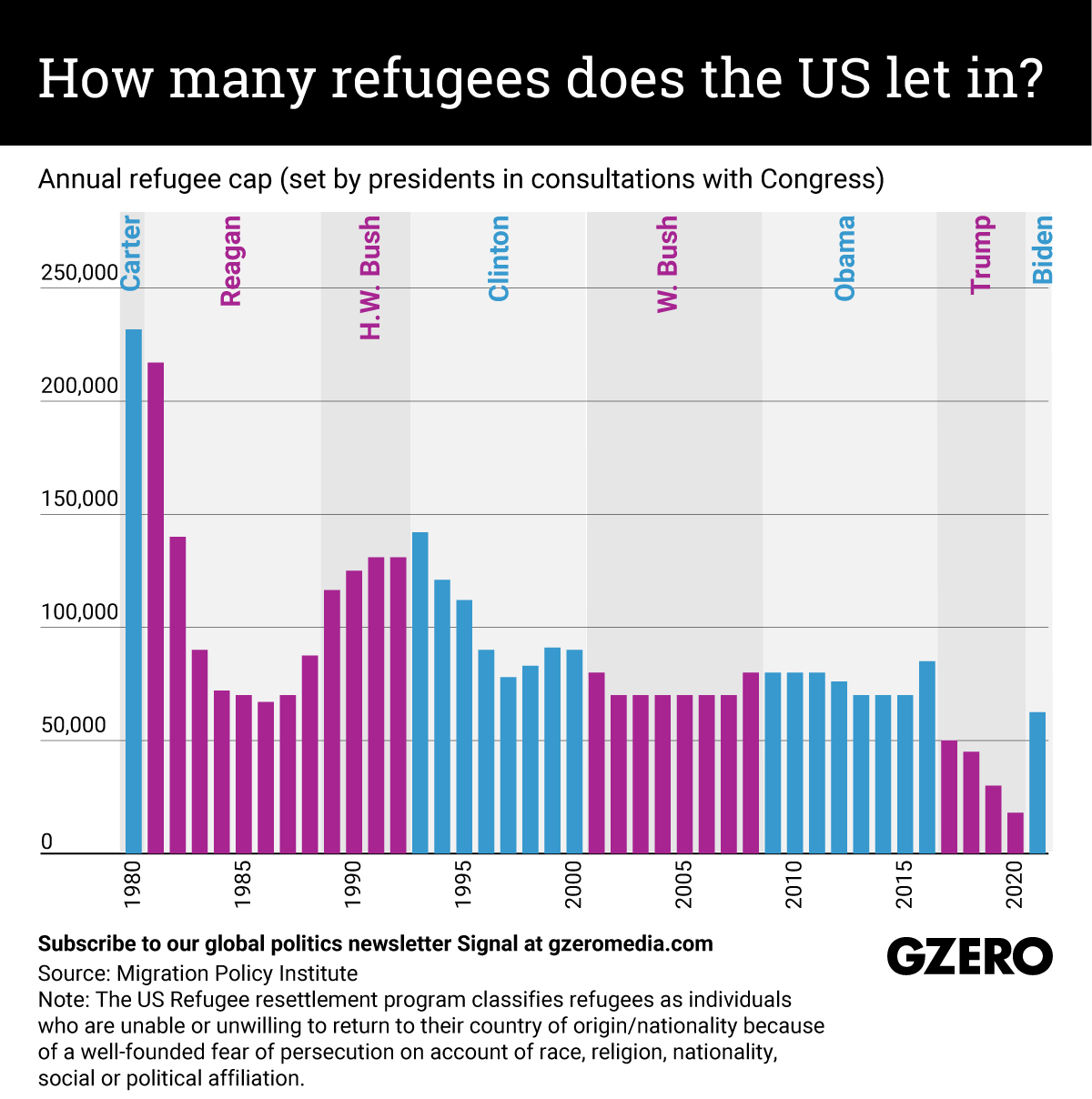The Graphic Truth: How many refugees does the US let in?
May 04, 2021
Immigration has been a major challenge for the nascent Biden administration, testing the new US president's ability to placate moderates on both sides of the aisle, as well as the progressive wing of his own party. Biden initially pledged to keep the US' annual refugee cap at 15,000 — a "ceiling" set by the Trump administration, the lowest in US history. But after that move sparked swift backlash, Biden this week reversed course: 62,500 refugees will now be allowed to enter the US over the next six months. How does this compare to policies set by previous US administrations? We take a look at refugee admittance numbers since 1980.
